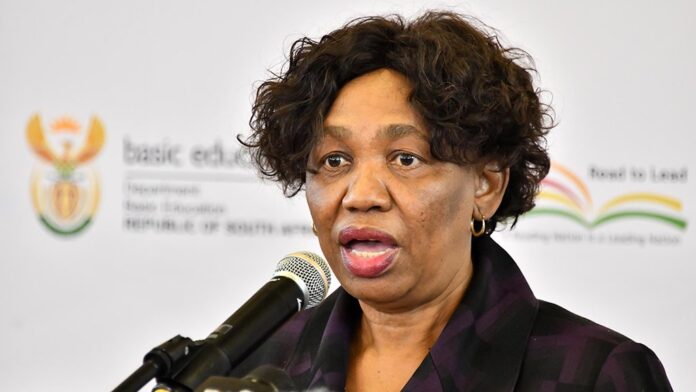Basic Education Minister Angie Motshekga recently announced that the matric results for the past five years indicate a stabilization in South Africa’s education system.
With over 900,000 candidates awaiting their matric results, which are set to be released on Friday, Motshekga expressed optimism despite the challenges faced during the examination season.
According to Motshekga, the consistent performance of matriculants over the years is a positive sign for the education sector.
[ Ramaphosa Visits Family Of ANC Supporters Who Died On January 8 ]
This stability allows the Department of Basic Education to identify areas for improvement and make necessary adjustments to enhance the overall system. By having a stable foundation, the department can focus on targeted interventions rather than constantly dealing with fluctuations.
The class of 2022 achieved a pass rate of 80.1%, while the previous year’s class achieved a pass rate of 76.4%. These results demonstrate a steady improvement and highlight the efforts made by the department to enhance the quality of education in the country.
Motshekga emphasized the importance of aligning the curriculum with the skills required by students after completing matric. The department is committed to ensuring that the curriculum equips learners with the necessary knowledge and abilities to succeed in their future endeavors.
By continuously improving the curriculum, the department aims to bridge the gap between education and employment, ensuring that students are adequately prepared for the challenges of the workforce.
While the matric results provide valuable insights into the performance of South African students, it is crucial to consider the broader context.
The education system faces various challenges, including resource constraints, unequal access to quality education, and socioeconomic disparities. These factors can impact the overall outcomes and should be addressed holistically to create a truly equitable and inclusive education system.
Efforts to stabilize the education system require collaboration and support from various stakeholders, including parents, teachers, policymakers, and the broader community. It is essential to create an enabling environment that fosters learning and provides equal opportunities for all students.
Catch up with the latest news from The Times Post on WhatsApp by following our channel. Click here to join.















